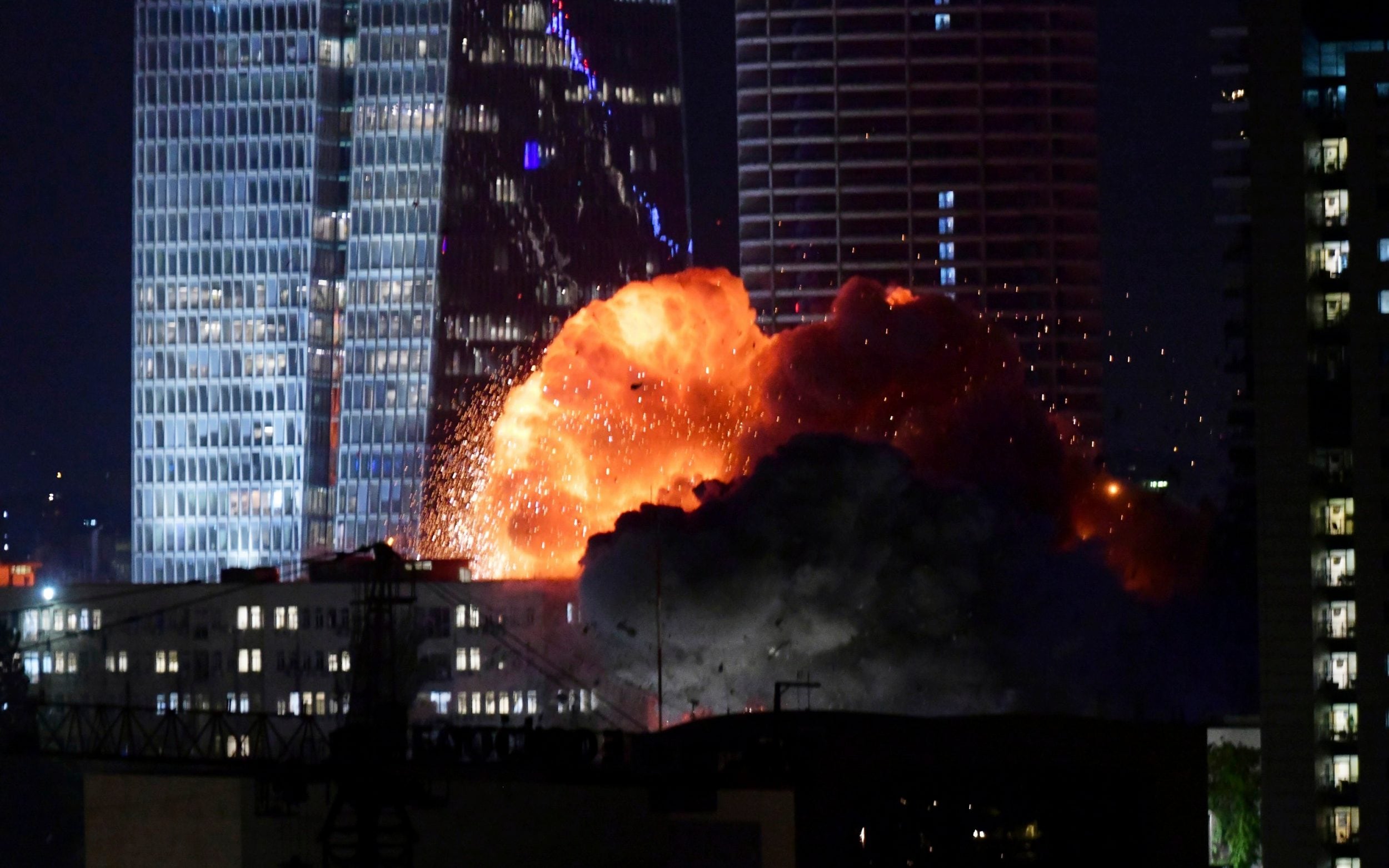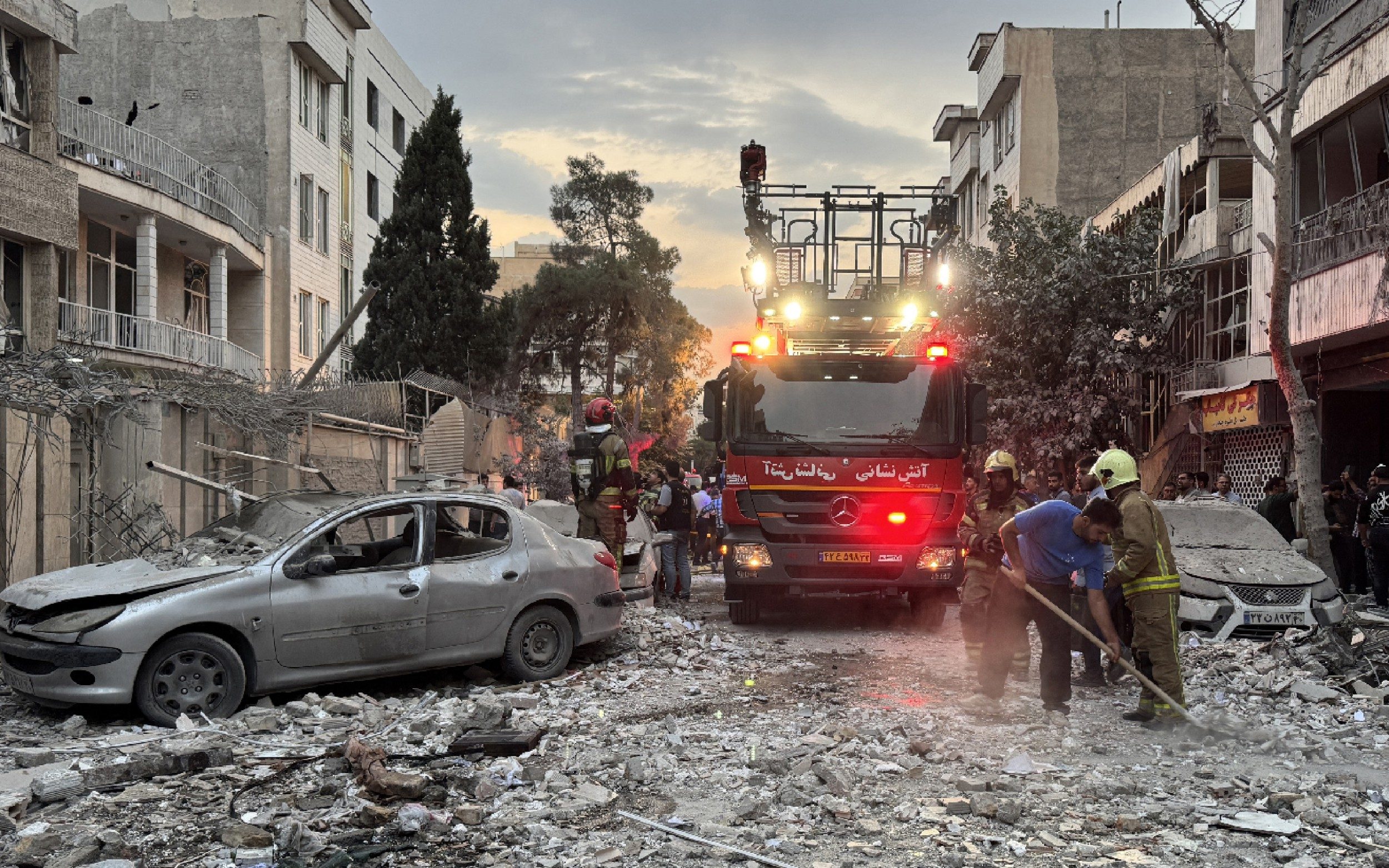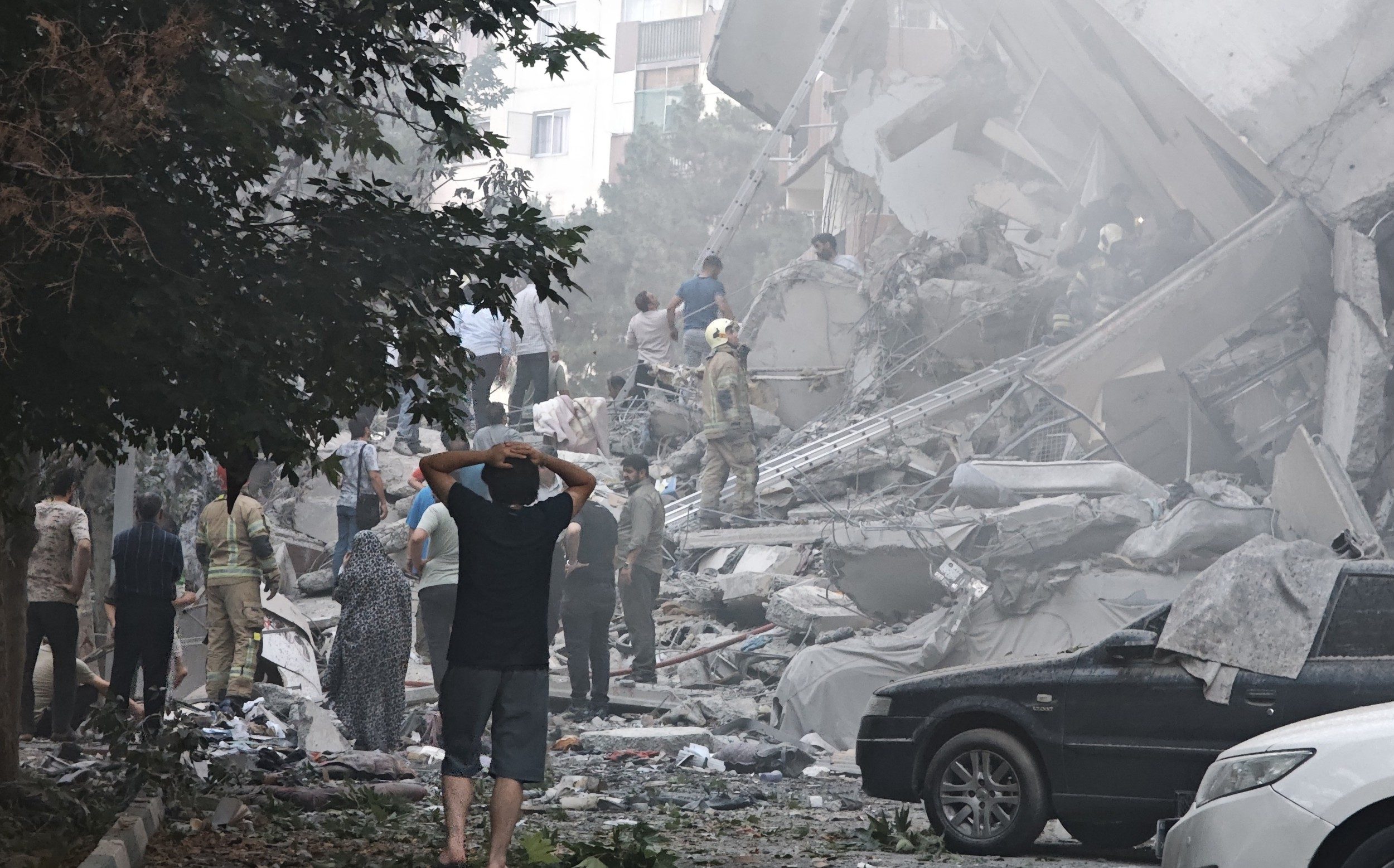Iranian missiles targeted Tel Aviv and Jerusalem as Tehran escalated its retaliation against Israel .
Dozens of ballistic missiles struck Tel Aviv, Israel’s second largest city, and other sites in the country on Friday in what the IDF said was an attack on civilians Footage showed at least one high-rise building badly damaged in the city centre. It was not immediately clear whether it had taken a direct hit.
Israel said there were at least five casualties in what would amount to a serious escalation. Iran has not previously aimed missiles at civilian areas.
Attacks continued early on Saturday morning, with residents in Jerusalem running for shelter as projectiles rained down over the ancient city.
Iran has crossed red lines by daring to fire missiles at civilian population centers in Israel," Israel Katz, Israel's defense minister, said in a statement on Friday. "We will continue to defend the citizens of Israel and ensure that the ayatollah regime pays a very heavy price for its heinous actions.
The attacks came after Israel launched waves of missiles at Iran in the early hours of Friday, decapitating the top layer of Tehran’s military and attacking nuclear sites.

After the barrage, which lasted hours, Donald Trump warned Iran's leaders that they faced complete destruction unless they agreed to a deal that put an Iranian nuclear bomb out of reach.
The US president told Iran to make a deal, before there is nothing left , and save what was once known as the Iranian empire.
The initial raids on Iran involved about 200 aircraft using 330 different munitions across 100 targets , the Israeli Defense Forces said.
Senior military commanders as well as a wide array of military and nuclear installations across the country were hit, they added.

The Israeli attack continued deep into the afternoon, with the Israeli air force targeting ballistic missile systems that could be used in a counterattack.
Leaving these missiles in the hands of the Iranian regime poses a danger to the region and the entire world " said an IDF spokesman.
On Friday night, Iran claimed it had captured an Israeli pilot after the fighter jet attacks. Israel denied the reports.
After initially saying “we are not involved in” the attacks, the US moved to frame the action as a possible “second chance” for Iran’s leadership.
On a post on his social media platform Truth Social, Mr. Trump wrote:
In a separate, earlier post, the US president said: "There has already been great death and destruction, but there is still time to make this slaughter, with the next already planned attacks being even more brutal, come to an end."
Benjamin Netanyahu, the Israeli prime minister , pledged to keep up the attack for “as many days as it takes” to decapitate Iran’s nuclear program.
On Friday night, there were reports that Israel had hit Iran’s deepest and most sophisticated nuclear sites.
"I can now confirm that we struck the nuclear facility in Isfahan. The operation is still ongoing," military spokesman Brigadier General Effie Defrin told reporters.
Earlier in the day, Iranian nuclear facilities at Natanz and Fordow were hit.
At the Natanz facility for uranium enrichment, Israeli defense officials assessed the damage as significant.
According to the military, the Israeli strikes destroyed the underground section of the site, which housed "a multi-level enrichment hall housing centrifuges, electrical rooms and other supporting infrastructure".
The strikes also destroyed "critical infrastructure, disabling the site's continued operation and advancement of" the Iranian regime’s nuclear weapons project ”.
Analysts said that while the strikes on Iran's nuclear facilities were significant, they were probably not decisive. Some gave more weight to Israel's "decapitation" strategy that killed three of Iran's most powerful men overnight.
Those reported killed included Hossein Salami, the commander-in-chief of the Islamic Revolutionary Guard Corps, and Mohammad Bagheri, the chief of staff Salami was close to the armed forces. supreme leader Ali Khamenei and often accompanied him at public events. Together, the pair led the Supreme National Security Council.
Salami and Bagheri would normally have coordinated with Khamenei to launch retaliatory action against Israel.
There was first fear, then "elation" in Israel as news of the strikes spread, said a Tel Aviv local. However, by nightfall Israeli officials were warning people to stay near shelters, saying they expected several "waves" of attack from Iran.
At around 7:30 PM UK time, Iranian news outlets were reporting that "hundreds of ballistic missiles" had been launched towards Israel.
During the Iranian barrage, the US said it was helping to intercept missiles. America has been moving assets closer to Israel to assist and to provide better protection for US bases in the region.
Mr Trump and Emmanuel Macron, the French president, had said they would defend Israel if it came under attack.
The US president said his country was ready to defend itself and Israel if Iran retaliated, Fox News reported.
Mr Macron said that France would defend Israel if it was attacked by Iran as it had done in the past, but he ruled out taking part in any operation against Tehran.

France and Israel, traditionally close allies, have had frosty relations in recent months, with Mr. Macron increasingly critical of Israel’s war in Gaza.
Sir Keir Starmer said that Israel had the right to defend itself, but he declined to comment on reports that Britain would not help intercept missiles and drones fired at Israel when speaking to Bloomberg.
UK forces assisted Israeli defense efforts during the last Iranian attack on the country.
Vladimir Putin said on Friday that he had spoken to the leaders of both Israel and Iran and urged them to return to diplomacy.
In a Kremlin statement, Putin told Iran’s Masoud Pezeshkian that Russia “condemns the actions of Israel taken in violation of the UN Charter” and he expressed condolences for those killed.
The statement said that Putin stressed in his conversation with Mr. Netanyahu "the importance of returning to the negotiation process and resolving all issues related to Iran's nuclear program strictly through political and diplomatic means."
Mr Netanyahu called on Iranians to unite against what he described as an "evil and oppressive regime," telling them that Israel was engaged in "one of the greatest military operations in history."
"The time has come for the Iranian people to unite around its flag and its historic legacy, by standing up for your freedom from the evil and oppressive regime," he said in a video statement.
"We are in the midst of one of the greatest military operations in history, Operation Rising Lion," he added.
Sign up to the Front Page newsletter for free: Your essential guide to the day's agenda from The Telegraph - direct to your inbox seven days a week.


0 Komentar